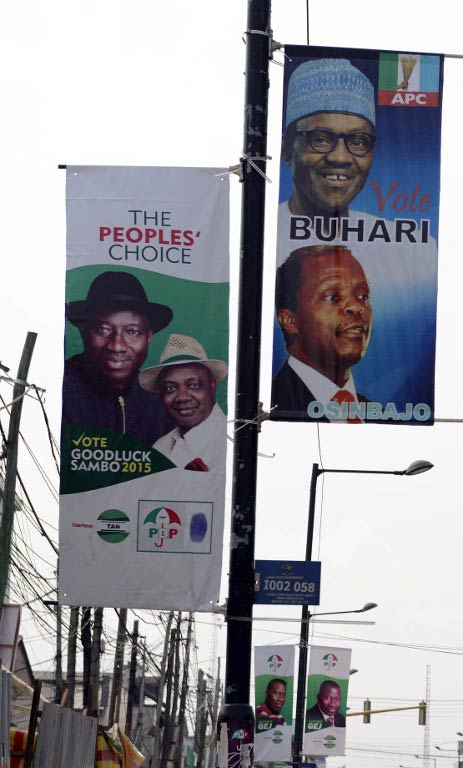
Nigeria, Africa’s most populous country and its biggest economy, holds general elections on Saturday. Here are five issues that could shape the results.
Security
Which candidate is best suited to end Boko Haram’s six-year uprising that has killed more than 13 000 people and left 1.5 million others homeless?
This may be the key question for some of Nigeria’s 68.8 million registered voters, especially those in the north directly affected by the violence.
President Goodluck Jonathan’s record on the conflict has been widely criticised.
Despite successes claimed over the Islamists in the last six weeks, many observers have described his response to the uprising as misguided and lacking urgency.
Opposition leader Muhammadu Buhari, a former military head-of-state, is generally seen as capable of being a strong commander-in-chief.
But experts have also noted that, despite the bloodshed, Boko Haram will not be the decisive issue for all voters, particularly for southerners untouched by the insurgency.
Corruption
Graft has crippled progress in Africa’s top economy for decades and may be the key issue that unites voters of all religions and ethnic groups.
Buhari has made the fight against corruption the key to his political identity, dating back to 1983, when he took power in a coup that toppled a civilian administration accused of stealing public funds.
While Jonathan insists he has made progress in cleaning up the federal government, critics say graft has in fact flourished under his watch, including at the state-owned oil corporation.
Most experts say the March 28 vote is too close to call but if Buhari manages to unseat an incumbent president – which would be a first for Nigeria – his anti-graft credentials will likely have played a key role.
Economy
The collapse in global oil prices highlighted Nigeria’s vulnerability to crude market shocks.
Oil generates more than 70 percent of government revenue and falling prices have sent the economy into a tailspin.
Jonathan’s economic czar, Finance Minister Ngozi Okonjo-Iweala, has been calling for diversification for years, with a focus on revitalising agriculture.
The president’s performance on agriculture has been praised and there are signs of increased investment and job growth in the long-neglected sector, which could help him on re-election day.
Annual GDP growth has also averaged more than five percent through Jonathan’s tenure.
But poverty and unemployment remain rampant with most of Nigeria’s 173 million people living on less than $2 per day.
Buhari’s economic credentials have been questioned, especially given his background as an army general and military ruler.
Doubts over his ability to steer Africa’s top economy could hurt him on polling day, with whoever wins facing a pressing problem of how to boost government coffers in an unfavourable climate.
Tribe
Always a factor in Nigerian elections, Buhari’s Hausa-Fulani tribesmen who dominate Nigeria’s mainly Muslim north believe it is their turn to control the presidency.
A southerner has occupied the presidential villa for 13 of the 16 years since democracy was restored in 1999.
While a majority of northerners are likely to support Buhari, Jonathan will still win votes in the region, which, like the rest of the country, is ethnically mixed.
The president is an Ijaw, a minority ethnic group in the oil-producing Niger Delta, and is expected to win a majority there as well as in neighbouring areas dominated by the Igbo tribe.
Religion
Some of Buhari’s rivals have tried to portray him as a religious fanatic committed to imposing Islamic law across all of Nigeria.
The charge is almost certainly baseless but experts say it could dissuade some swing voters in the mostly Christian south.
Jonathan has not made his Christian faith or Buhari’s religious beliefs a key part of his public campaign but he is still expected to win more votes among Christians.
